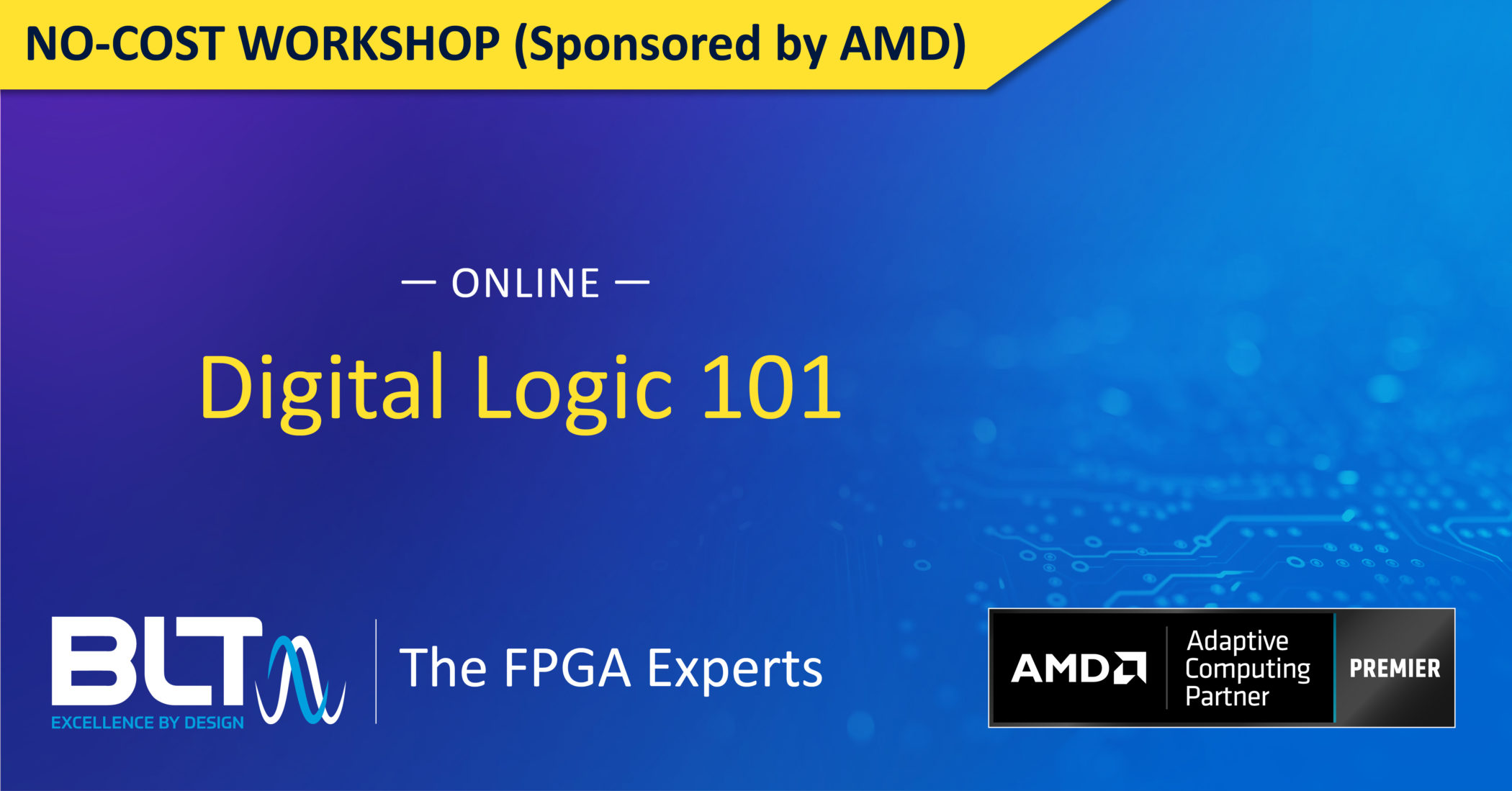Digital Logic 101 Workshop
Digital Logic 101 Workshop
This workshop provides a foundational introduction to digital logic, tailored for beginners and professionals who want to understand the principles of digital design.
The emphasis of this course is on:
- How many bits make a byte
- Understanding flip flops
- Introducing binary and binary arithmetic
- Combinational and sequential logic
- Fundamental digital design techniques
- Intro to logic devices, including FPGAs, ASICs and SoCs
- Intro to the standard industry tools, libraries and IP
This course introduces AMD architectures, including Versal adaptive SoC, Zynq UltraScale+ MPSoC, Spartan UltraScale+, Artix, KriaSoM and more.
COST:
AMD is sponsoring this workshop, with no cost to students. Limited seats available.
SCHEDULED EVENTS
Training Duration:
1 Day (6 hours)
Be the first to know. Sign up for our newsletter.
Who should attend:
Beginners in digital electronics or computer engineering; managers, system architects and engineers in related fields that are looking to learn about digital logic.
Skills Gained
After completing this comprehensive training, you will have the necessary skills to:
- The fundamentals of digital logic, including how logic gates and binary numbers work.
- The basic principles of designing simple combinational and sequential circuits.
- How to use basic Boolean algebra to simplify logic expressions.
- The essential concepts of digital circuit design, including combinational components like multiplexers and decoders, and sequential elements like flip-flops and counters.
- The basics of digital simulation tools for testing and verifying simple circuit designs.
- An introduction to FPGAs and SoCs, with a basic understanding of their purpose and how they are used in digital electronics.
- An introduction to FPGA tools, libraries, and IP
- The foundational steps in digital design, preparing you for further study or exploration in the field of digital logic and electronics.
Course Outline
| Day 1 |
|---|
| Introduction to Digital Logic Explores the basics of digital logic, including binary numbers, logic levels, and fundamental logic gates like AND, OR, NOT, NAND, NOR, XOR, and XNOR. Combinational Logic Design Sequential Logic Fundamentals Binary Arithmetic and Coding Introduction to Circuit Design and Simulation Introduction to Logic Devices: FPGAs and SoCs DEMO: Introduction to Logic Gates DEMO: Binary Counting DEMO: Building a Simple Combinational Circuit DEMO: Creating a Basic Sequential Circuit DEMO: A look at Vivado and Vitis |
Please note: The instructor may change the content order to provide a better learning experience.

Prerequisites:
- This is a foundational course with no prerequisites